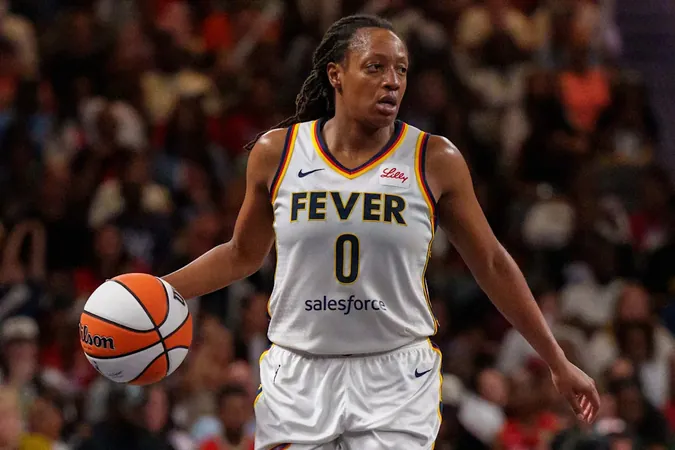
Marathon Runners Beware: Alarming New Study Links Extreme Endurance Running to Higher Colon Cancer Risk
2025-09-21
Author: Jessica Wong
A Shocking Revelation for Runners
A groundbreaking study from the Inova Schar Cancer Institute is turning heads in the running community, revealing a potential connection between marathon running and an increased risk of precancerous colon conditions in younger adults. This eye-opening research highlights the health implications for those aged 35 to 50 who regularly partake in extreme endurance events.
The Study’s Startling Findings
In examining a group of dedicated runners, the study exposed an unexpected prevalence of adenomas—precancerous polyps in the colon—among participants. Out of 100 runners with no prior colonoscopies, a staggering 41% had at least one adenoma, and 15% had advanced adenomas that pose a higher risk of developing into cancer.
Colon Cancer: The Silent Threat
Colon cancer is one of the most common and deadly cancers globally, primarily developing from benign growths in the large intestine. It’s crucial for everyone, especially athletes, to stay vigilant about their colon health.
Why Should Runners Pay Attention?
Led by Dr. Timothy Cannon, this pivotal study presented at the 2025 American Society of Clinical Oncology meeting suggests that even the fittest individuals may overlook serious health concerns. The findings emphasize the need for increased awareness and screening, particularly for runners in younger demographics.
Potential Causes Behind the Connection
What’s driving this alarming trend? Long-distance running may temporarily divert blood flow from the gut, reducing oxygen supply and possibly leading to intestinal injuries over time. This stress can be exacerbated by conditions like 'runner's colitis,' where repeated gastrointestinal issues could raise cancer risks.
Who Needs to be Cautious?
Runners aged 35 to 50, particularly those engaging in multiple marathons or ultramarathons, should be particularly alert. Symptoms such as rectal bleeding, changes in stool, or persistent abdominal pain should never be dismissed as mere runner's issues.
Essential Guidelines for Runners
1. **Don’t Delay Screening**: If you're 45 or older, or younger with a history of endurance running, consult your doctor about scheduling a colonoscopy.
2. **Stay Vigilant for Symptoms**: If you experience any unusual gastrointestinal issues post-run, seek medical advice.
3. **Manage Your Training**: Ensure adequate recovery between training sessions to avoid excessive strain on the gut.
4. **Discuss Risk Factors**: Be transparent with your healthcare provider about your training habits and family history of colon cancer.
5. **Maintain a Healthy Lifestyle**: Keep a balanced diet, manage weight, and avoid harmful substances to lower overall cancer risk.
A Call to Action for the Running Community
As this study sheds light on potential health risks for endurance athletes, it’s crucial for runners to prioritize their health just as they do their training. Don’t let your passion for running overshadow the importance of listening to your body and staying proactive about screening.




 Brasil (PT)
Brasil (PT)
 Canada (EN)
Canada (EN)
 Chile (ES)
Chile (ES)
 Česko (CS)
Česko (CS)
 대한민국 (KO)
대한민국 (KO)
 España (ES)
España (ES)
 France (FR)
France (FR)
 Hong Kong (EN)
Hong Kong (EN)
 Italia (IT)
Italia (IT)
 日本 (JA)
日本 (JA)
 Magyarország (HU)
Magyarország (HU)
 Norge (NO)
Norge (NO)
 Polska (PL)
Polska (PL)
 Schweiz (DE)
Schweiz (DE)
 Singapore (EN)
Singapore (EN)
 Sverige (SV)
Sverige (SV)
 Suomi (FI)
Suomi (FI)
 Türkiye (TR)
Türkiye (TR)
 الإمارات العربية المتحدة (AR)
الإمارات العربية المتحدة (AR)